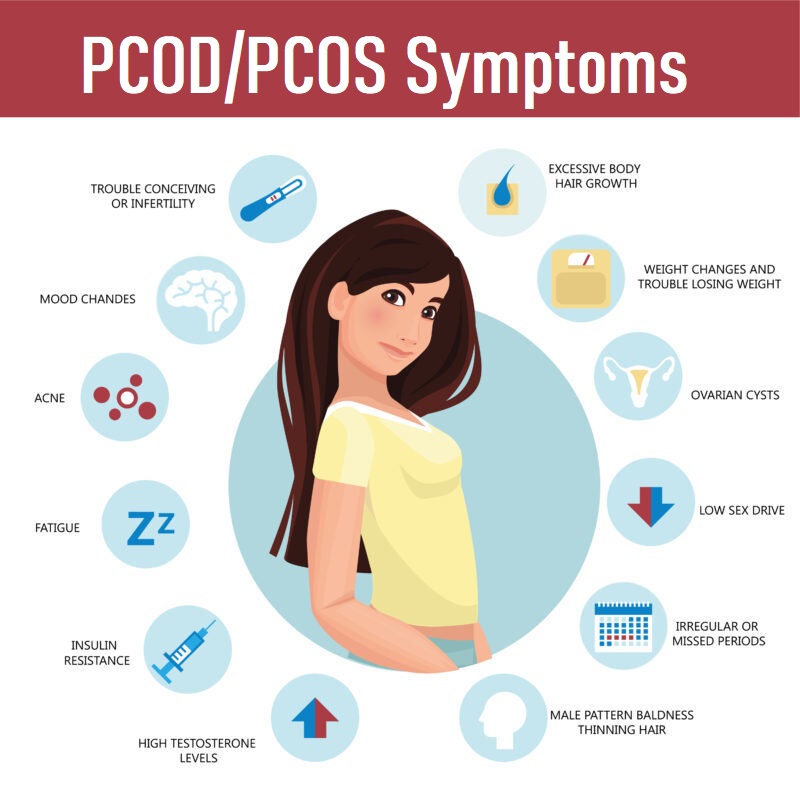Polycystic Ovarian Disease (PCOD), also known as Polycystic Ovary Syndrome (PCOS), is a widespread problem affecting 5% to 10% of women aged 12–45 years. The disease contains the problem of hormonal imbalance among women. The main problem may include no ovulation, irregular periods, acne, and hirsutism. If the issue is not considered, it may cause insulin-resistant diabetes, obesity, and high cholesterol that may cause heart disease.
What causes Polycystic Ovarian Disease?
Typically, ovaries produce female sex hormones with some amount of male sex hormones (androgens). The production of balanced hormones helps in the development of eggs during each menstrual cycle.
PCOSPolycystic ovary syndrome is related to an imbalance in these sex hormones. This causes patients to stop ovulating, get pimples, and grow extra facial and body hair.
Usually, one or more eggs are released during each menstrual cycle. It is called ovulation.
In polycystic ovary syndrome, the eggs in these follicles do not mature and are not released from the ovaries. Instead, they can form tiny cysts in the ovary, hence the name polycystic ovaries.
PCOS seems to run in families, so the chance of having it is higher if other women in the family have PCOS, irregular periods, or diabetes.
Common symptoms of PCOD/PCOS include:
- Acne
- Weight gain and trouble losing weight
- Extra hair on the face and body. Women’s bodies get thicker, with dark hair on the face, and hairs may increase on the chest, belly, and back.
- Thin hair of the scalp
- Irregular periods.
- Fertility problems. Women with PCOS have trouble getting pregnant.
- Depression
The medical treatment of PCOD/PCOS focuses on managing your concerns, such as infertility, hirsutism, acne, or obesity.
Treatment
- Lowering of blood glucose levels
- Restoration of fertility
- Treatment of hirsutism or acne
- Restoration of regular menstruation and prevention of endometrial hyperplasia and endometrial cancer
Losing weight (which can be tricky) has been shown to help with diabetes, high blood pressure, and high cholesterol. Even a weight loss of 5% of total body weight has been shown to help with the imbalance of hormones and infertility.
PCOD/PCOS Complications
- Increased risk of endometrial cancer
- Infertility (early treatment of polycystic ovary disease can help prevent infertility or increase the chance of having a healthy pregnancy)
- Obesity-related (BMI over 30 and waist circumference greater than 35) conditions, such as high blood pressure, heart problems, and diabetes
- Possible increased risk of breast cancer.
These are some widespread complications that PCOD/PCOS symptoms affect women’s bodies.
